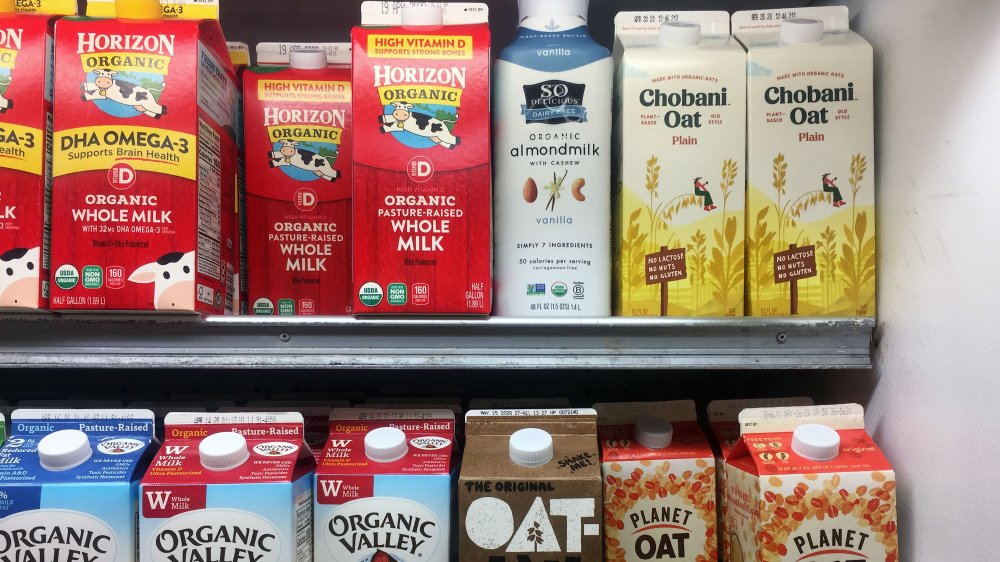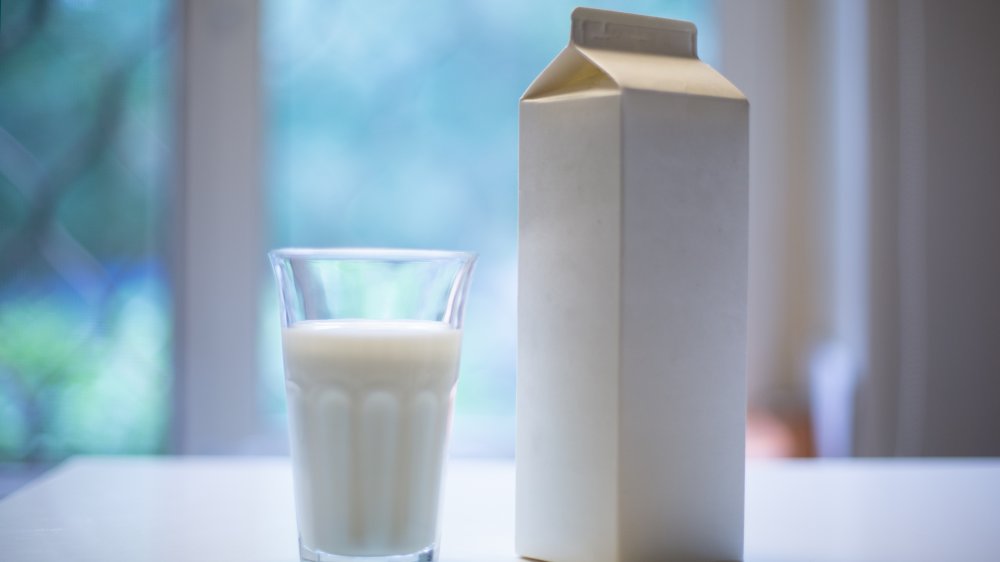Is Oat Milk Better For You Than Dairy Milk?
The latest coffeehouse trends — we're looking at you, oat milk lattes — have brought yet another type of alternative milk into our lives. While different types of milk can be great for some people, the nutritional trade-offs between each are important to look at and consider. While soy milk was among the earliest types of alternative milk, those with soy allergies (especially those with unknown allergies) can realize they have sly symptoms from drinking the product (via ACAAI).
Oat milk has roughly 20 fewer calories than whole dairy milk, according to Healthline and Milk Life. While oat milk is not as nutritious as whole oats, the milk itself is fortified with calcium, iron, potassium — and, like regular milk, vitamins A and D. That means all of those nutrients are added to the milk during the manufacturing process instead of naturally occurring. Other alternative milk options like almond, soy, and cashew milk are significantly lower in calories and carbs than dairy milk, according to Everyday Health.
Oat milk, however, has the one major advantage — it is perfect for people with allergies or sensitivities to lactose, nuts, or soy, even though it is higher in calories and carbs.
Dairy milk benefits
The primary benefits of dairy milk over oat milk are fewer carbs, a simpler ingredient list, and more naturally-present nutrients. Vitamins A and D are the primary added ingredients to fortify milk, but other major vitamins and minerals, like calcium, riboflavin, vitamin B12, phosphorous, and others occur naturally — including more protein. With nearly twice the amount of protein in dairy milk, the protein and the carb count can help keep consumers feeling full for longer according to Harvard University.
While some worry about hormones in dairy milk, many of these hormones are naturally occurring, or are also found in human breast milk. Most of these hormones do not affect humans, with the only exception, which involves growth and regeneration, is the hormone IGF-1, which humans can absorb. This hormone is, however, also found in human breast milk (via Healthline).
While there are certainly benefits to both oat milk and dairy milk, every individual body reacts to ingredients, foods, and macronutrients like protein and carbs differently. This means dairy milk could be better for some, while oat milk is better for others — especially those with allergies or sensitivity to lactose. So make a choice that best suits you and your needs.

